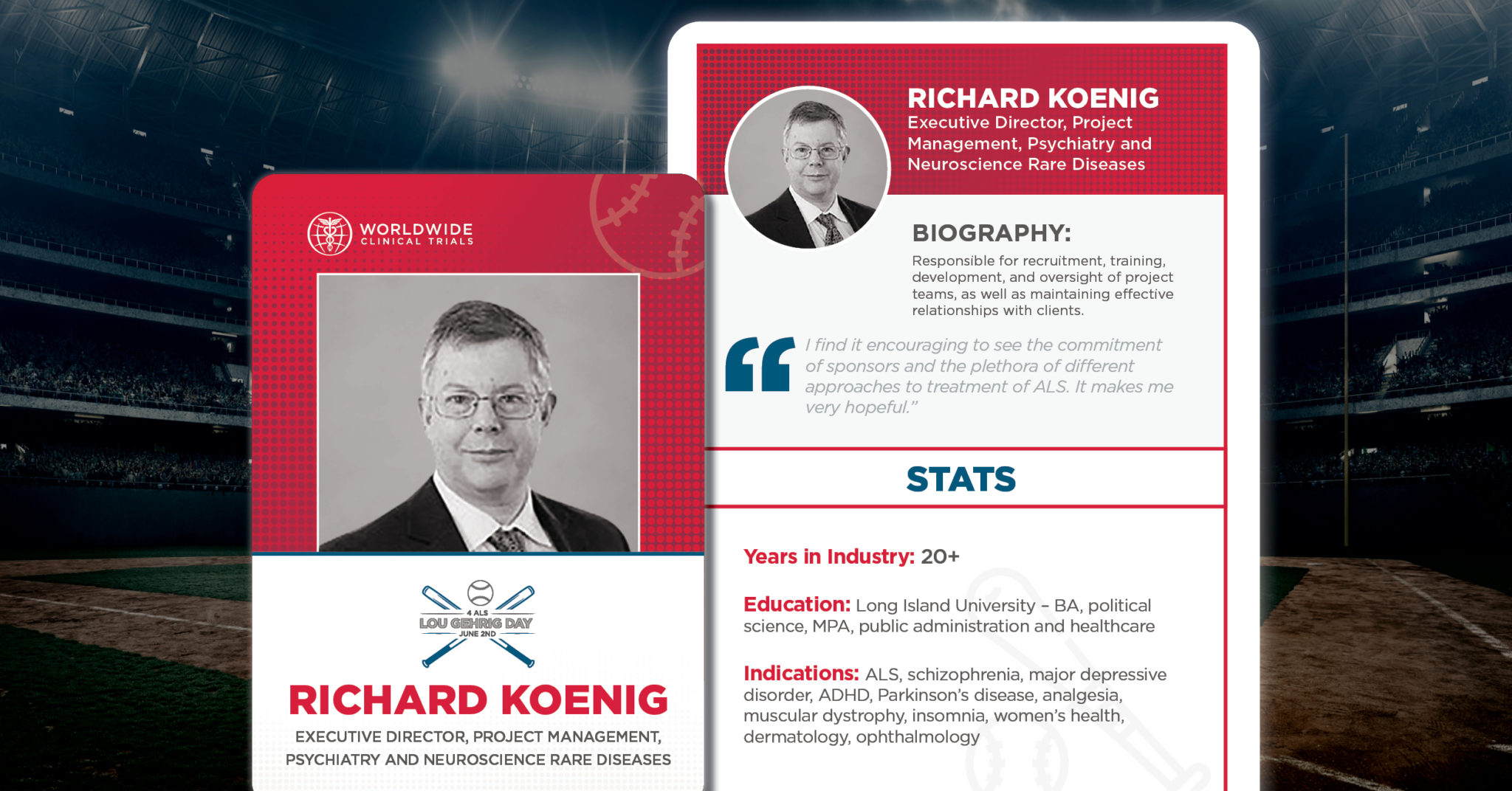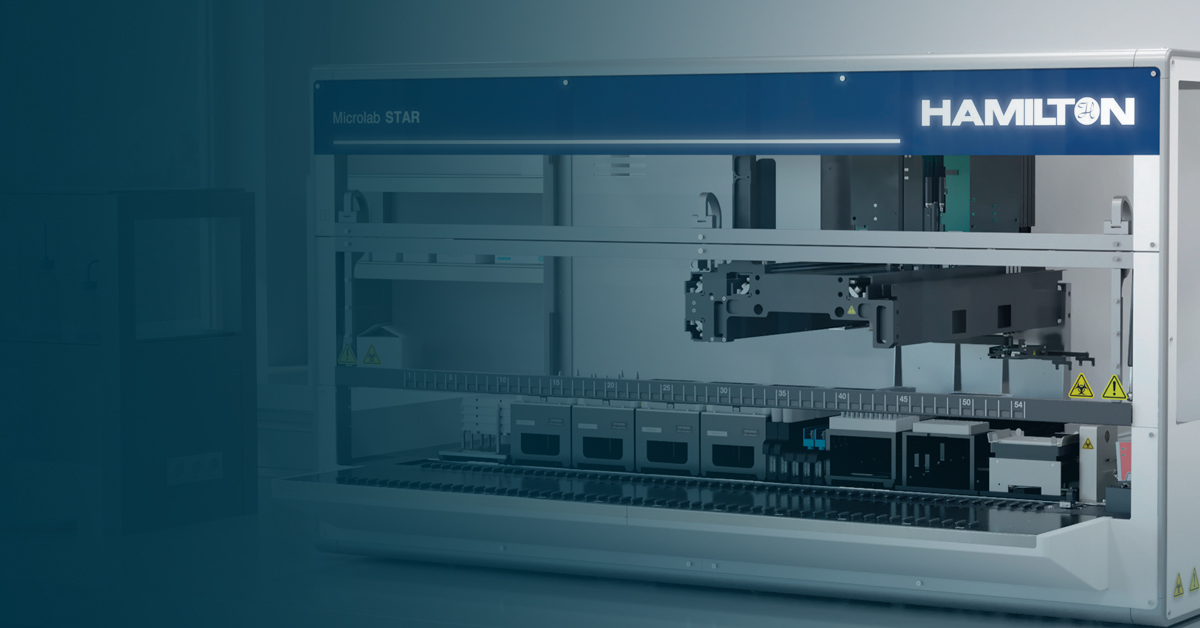
June 2 is Lou Gehrig Day, dedicated to promoting awareness about amyotrophic lateral sclerosis (ALS), also known as Lou Gehrig’s disease. At Worldwide Clinical Trials, our CNS experts are sharing their reflections on the importance of ALS research and what gives them hope for the future.
In this piece, Richard Koenig, Executive Director of Project Management for Psychiatry and Neuroscience Rare Diseases, discusses the role of public awareness initiatives in changing the future for ALS patients.

Who Was Lou Gehrig?
I’m 61 years old, and I grew up in New York. I know who Lou Gehrig was. I’m not sure my 20-year-old kid would know.
Lou Gehrig was very famous, a record-setting baseball player. Everyone knew who he was, particularly if you lived in New York. He retired from baseball when he was diagnosed with amyotrophic lateral sclerosis (ALS), and he became a symbol for a disease that most people had previously known nothing about.
As time goes by, more and more people will not know who Lou Gehrig was. It’s important to identify ALS as a disease in itself, so that we can maintain awareness.
Why ALS?
ALS cheats people of the life and the expectations that they have for their later years. We look forward to seeing our kids grow up, to retiring, to having time to spend with family and to pursue other goals. An ALS diagnosis means facing a rapidly progressing degenerative disease, which we know is fatal; it can come out of the blue and rob people of their life goals, not to mention the dreams of their loved ones.
ALS, like many CNS conditions, is a disease that is more than its physical symptoms. It changes your personality and cognition – in effect who you are as an individual. It has an impact on the patient’s relationships. Family members of ALS patients often experience grief as the illness progresses, as their loved one seems to become a different person. This is a dimension you don’t find in all indications. ALS is physically debilitating, emotionally demanding, and ultimately fatal.
My Personal Passion
This is what drives my passion for this therapeutic area. I’ve been in the clinical research industry for more than 20 years, most often in project management and clinical trial management roles. As a franchise area lead at Worldwide Clinical Trials, I’ve had the privilege of focusing on my particular passions. Where some CROs are more focused on psychiatric conditions like depression or schizophrenia, at Worldwide there’s more of an emphasis on both rare disease and neurological trials like ALS or neurodegenerative disease trials.
Operational Challenges, Humane Solutions
All rare disease studies face recruitment challenges. This is particularly the case for a condition like ALS. Most patients only live about two to four years after diagnosis, during which time their physical condition deteriorates profoundly. The patient receives a devastating diagnosis and then must make difficult decisions about how they will spend the precious time they have left. If they make that courageous decision to participate in a clinical trial, they will need caregiver support, which adds another level of decision-making. We also face challenges finding sites that work with ALS patients and have experience conducting studies.
As the CRO, we want to minimize the burden not only on the patient who will participate in the study but also on their caregivers. We want to remove any barriers to participation. We also want to facilitate the process as much as we can for the investigative sites so that the investigators are supported and appreciated for their hard work. As much as possible, we want to minimize the burden for all people involved.
If You Don’t Remember Lou Gehrig, do Remember ALS
I’m hopeful that one day we will find a way of treating ALS so that people won’t have to worry about dying or being incapacitated by the disease. Every time I read a proposal or a new protocol, it stirs hope within me that maybe this will be the one.
But it’s important to create awareness for ALS. Lou Gehrig was an effective symbol for many of us. I think the Ice Bucket Challenge was another great initiative to make people aware of the disease and its symptomology, and it challenged people to empathize and to support research efforts. No matter what it takes to support the sponsors who are developing new treatments and the teams who carry out the investigations, I want to carry on Lou Gehrig’s legacy and keep the message that he stood for alive.



